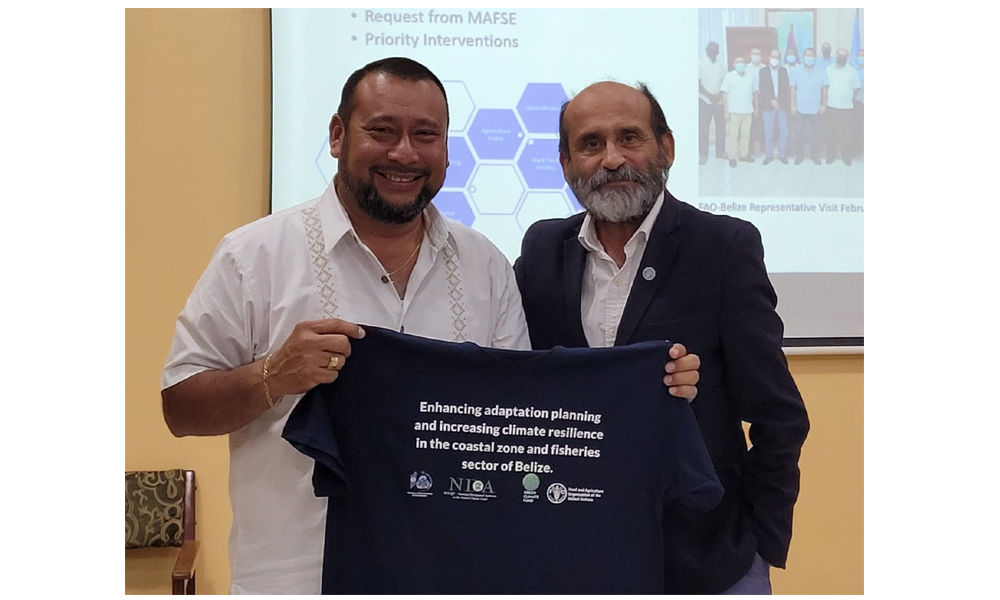Photo: (l-r) Minister of Agriculture, Hon. Jose Mai and FAO’s Representative in Belize, Mr. Crispim Moreira
by Khaila Gentle
BELMOPAN, Tues. Nov. 22, 2022
On Monday, the Ministry of Agriculture, Food Security and Enterprise launched two new technical cooperation projects in collaboration with the Food and Agriculture Organization (FAO) that are valued at about $200,000 US each. The projects focus on policy development in different sectors of the Ministry as well as the creation and improvement of digital agriculture services.
According to the Minister of Agriculture, Hon. Jose Mai, the projects were the result of a direct request by the ministry to the FAO.
“We realized that we had different weaknesses and deficiencies. It is unacceptable to have agriculture as the backbone of a country, but yet we don’t have sound agriculture policy,” said Minister Mai to reporters at the launch of the projects.
The project that focuses on policy development will place emphasis on seed policy as well as backyard poultry, marketing, and indigenous territories. According to a press release from the Ministry, it aims to improve the livelihood of rural farmers and indigenous people “through the adoption of an enhanced governance and policy framework enabling diversification through regional trade.”
The second project, said Minister Mai, will address the weaknesses of current existing digital agriculture programs.
“We realized that while we have very good programs in place, there are still weaknesses. For example we have BAIMS—Belize Agriculture and Information Management System—which is good as it is today, but it needs to be updated regularly, or whatever you have on there is useless. So we found that weakness, and again we asked FAO to help us to strengthen that,” he said.
The improvement to those digital systems will include the introduction of a marketing intelligence program which will allow users to have regularly updated information on what is currently on the agriculture market for sale.
Another collaborative project by the Ministry of Agriculture and FAO is their feeding program initiative. Through the initiative, which is also being carried out in collaboration with the Government of Mexico and CARICOM, some 488 primary school students have been receiving free, healthy meals daily.
The Resilient School Feeding Project is a part of a larger initiative known as the “Cooperation for Climate Change Adaptation and Resilience in the Caribbean” Initiative, or the Resilient Caribbean Initiative, for short.
Over the past year, six schools in Belize have had their kitchens upgraded and equipped with new appliances. Numerous school cooks have also been trained in food safety and the preparation of healthy meals. Those schools are Biscayne Government School, Chan Chen Government School, Guinea Grass RC, Lucky Strike Government School, Santa Martha Government School, and San Joaquin RC.
“Proper nutrition is important for a child’s growth and essential to learning at school. The school feeding program offers our children a proper diet, which promotes their physical and intellectual development. The program also assists parents and the community by ensuring that the children have a healthy development,” said the principal of Santa Martha Government School, Seleni Grajales.
The Resilient Caribbean Initiative is being funded by the Mexican Agency for International Development Cooperation (AMEXCID) and the Mexican Ministry of Foreign Affairs (SRE). It is being implemented by FAO in 14 CARICOM countries, six of which have focused on school feeding programs. Those six countries are The Bahamas, Belize, Saint Vincent and the Grenadines, Saint Lucia, Trinidad and Tobago, and Suriname.

